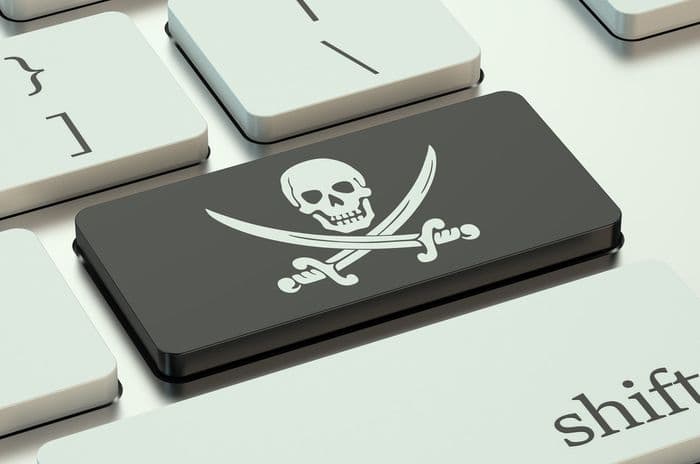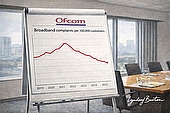Home > Broadband > News > ACS Law: how not to pursue filesharers
ACS Law: how not to pursue filesharers
ACS Law was a firm of solicitors infamous for exploiting laws designed to protect copyright in order to intimidate internet users into handing over money in 'fines' for illegally downloading films.

The firm never successfully bought a case to court and, as of February 3rd 2011, has now ceased practicing.
In this article we take a look back at what happened and ask: what does the future hold for those who ran ACS Law? And for filesharers?
How ACS Law operated
ACS Law started as it meant to go on: in May 2009 it took over a filesharing caseload and a number of staff members from a larger firm called Davenport Lyons, who had dropped the case during a flurry of criticism of their practices by consumer groups such as Which? and online rights campaigners.
ACS specialised in intellectual property law and, that same month, started sending out letters to those it accused of illegal filesharing.
In April 2010, 11 months later, the firm's sole solicitor, Andrew Crossley claimed to have recovered £1 million on behalf of his clients.
The letters
ACS Law's letters were sent out first on behalf of a client called DigiProtect and, later, on behalf of a client called Media C.A.T.
In all cases, however, the letters were very similar: they detailed a particular film which had been downloaded and included an IP address and time of download and threatened legal action or offered a monetary settlement.
An example of one of these letters, with the personal information it contains redacted, is available here.
All in all, it's estimated that ACS Law sent out around 11,000 of these letters between May 2009 and January 2011.
The victims.. and the spoils
Many of those receiving letters from ACS Law claimed, extremely persuasively, to have no knowledge of the alleged offence.
Victim's help sites such as the excellent 'Being Threatened' started to spring up, offering support for those sent legal threats.
However, we can surmise that at least some of those sent the letters paid up in order to avoid court action.
In that case, we learnt in a January 2010 court case (see below), 65% of the money from the fine went to ACS and only the remaining 30% to the rights holder.
How much ACS actually made from the letters it sent remains unknown but we do know that on 20 May 2011 Andrew Crossley declared himself bankrupt, despite, as PC Pro pointed out, continuing to reside in a £700,000 home.
The ACS Law hack
On 24 September 2010, the personal information of thousands of UK broadband users was released into the public domain following an attack on ACS Law's private database by hackers from the 4chan forum.
The Distributed Denial-of-Service (DDoS) exposed the details of Plusnet and Sky customers which had been disclosed to the firm following a legal court order.
Writing on the provider's forum Richard Fletcher, Plusnet's Chief Operating Officer, said that he was "...disappointed and gravely concerned" by the breach.
For ACS watchers, though, more intriguing than the leaked details were the reams of internal ACS emails uncovered by the hackers.
Some of them were embarrassing to the firm's solicitor Andrew Crossley personally (the emails to his ex-wife, for example) but many more detailed the trials and tribulations of the firm's attempt to make a buck from those it had accused of illegal downloading.
For example, emails unearthed by TorrentFreak showed the company lowering fines to £495 (past the 'psychological barrier' of £500) to encourage consumers to 'shut up and pay up'.
They also revealed that the firm decided not to take legal action against TalkTalk or Virgin Media customers after the two providers took a public stand against the practice of threatening broadband users.
All in all, the hack was a watershed for ACS: it proved definitively that the company was deliberately aiming to make broadband users pay up for filesharing, regardless of whether those claims could actually be proved.
ACS go to court
Perhaps partly spurred on by pressure after the hack's revelations about their working practices, ACS Law did eventually go to court and, on 13 December 2010, lost their first case.
Eight individuals were being sued for damages by the firm in the London Patents County Court for the download of an adult film.
The firm argued not just that the filesharers had violated copyright laws but that, since the films had an 'R18 restricted' rating from the British Board of Film Classification, they were in breach of a rule that says the films can only be distributed through licensed premises.
We can speculate that the embarrassment factor may have also driven the firm to pursue these particular cases.
Since, ACS Law claimed, the eight had failed to respond to cases against them the firm was seeking a default judgement, essentially trying to push through an outcome in the claimants' absence.
But Judge Birss QC dismissed all eight cases.
Dismissed
It turned out that three people had responded to the claims made against them, in three cases there was no evidence that a claim had been served at all and in two the judge found that ACS Law had failed to properly file the application.
Even if that hadn't been the case, however, Birss noted that, "the claimant's right to be a claimant at all is somewhat unclear on the face of the pleading."
In other words: even though ACS Law were acting on behalf of rights owners (a company called Media C.A.T), the court didn't recognise them as legitimate claimants since, in a patents case, the claimant must be the rights holder.
All in all, this was clearly a victory for those fighting against ACS Law incompetence rather than those opposing filesharing per se.
Judge Birss ended by saying that, "peer to peer file sharing which involves copyright infringement is an important and serious matter and claimants with a proper claim are entitled to use the full machinery of the courts to enforce their rights."
For that reason, ACS were told to bring a second case.
The second case
If the first ACS Law case was a shambles, though, it was nothing compared to their next bite of the apple.
On the eve of the 25 January 2011 court date against 27 filesharers Media C.A.T sent out a letter to the defendants telling them that it was dropping the case.
Then, in a surprise statement read out to the court, solicitor Andrew Crossley said that he had stopped all such work and was resigning from work on the case effective immediately.
Crossley said that he had been subject to criminal attacks, death threats and bomb threats as a result of his work.
Judge Birss told the court: "I want to tell you that I am not happy. I am getting the impression with every twist and turn since I started looking at these cases that there is a desire to avoid any judicial scrutiny."
After the case was finally heard Birss didn't get any happier.
The final judgement on 8 February concluded that ACS Law's allegations were, "based on untested legal and factual propositions and issues of technology."
The judgement also summed up ACS Law's previous problems with the case: the failure to submit evidence in the right format; inability to prove status as a rights holder and other failings.
Ralli, a law firm representing some of the case's defendants said after the judgement: "We are dealing with cases where consumers have explained how they cannot possibly have uploaded or downloaded copyright protected material, but they are still pursued.
Ralli later settled the matter of wasted costs with ACS Law out of court in a confidential agreement.
Crossley's solicitor's tribunal
Andrew Crossley went before the Solicitors Disciplinary Tribunal on 16 January 2012.
The tribunal, which had been planned for over two years, bought seven charges against Crossley. That he had:
- Compromised his independence
- Acted against his clients' best interests
- Diminished, by his actions, trust in the legal professions
- Received contingency fees (i.e. 'no win, no fee') in breach of rules governing their use
- Acted where there was a conflict of interest between him and his clients
- Used his position as a solicitor to take unfair advantage of other persons
- Failed to take adequate steps to protect his clients' data
Crossley only disputed the final charge, submitting evidence that he had taken adequate steps to protect data. Presumably the deliberate DDoS attack on the site was held to constitute extraordinary circumstances.
However, evidence from the Information Commissioner's Office (ICO) disputed that claim. It found that Crossley had not taken adequate steps to protect data and fined him £1,000. The fine would have been £20,000 if Crossley hadn't been bankrupt.
The tribunal suspended him for two years and directed him to pay costs of £76,326.55.
A spokesperson for the tribunal said: "We welcome the decision of the Solicitors Disciplinary Tribunal. Some of those affected were vulnerable members of the public and this matter has caused them significant distress."
What's next?
Implications for the Digital Economy Act
The case of ACS is intriguing because of its implications for the Digital Economy Act.
When ACS first started to take action the Act wasn't even law yet, many saw the bill as legitimising, and foreshadowing, action being taken against ordinary internet users on behalf of rights holders.
ACS denied that they were preemptively using the bill's provisions, arguing instead that injunctive relief and civil action seeking damages were already well established tools for those with a copyright infringement case.
Nevertheless, the controversy which ACS has engendered, especially among those who wouldn't previously have had much interest in action against filesharers, is likely to have some implications for the implementation of sections of the Digital Economy Act which relate to pursuing those in breach of copyright.
It seems unlikely that ISPs, for example, will be met by much truck from consumers if they willingly cooperate with such firms in the future.
Receive consumer updates that matter in our newsletter

We are independent of all of the products and services we compare.

We order our comparison tables by price or feature and never by referral revenue.

We donate at least 5% of our profits to charity, and we aim to be climate positive.
Latest News

27 February 2026
Social tariff uptake still below 10% despite wider availability
23 February 2026
Sky Atlantic to launch on Virgin TV in April
20 February 2026
Virgin Media complaints hit six-year lowReceive consumer updates that matter in our newsletter



Comments (1)